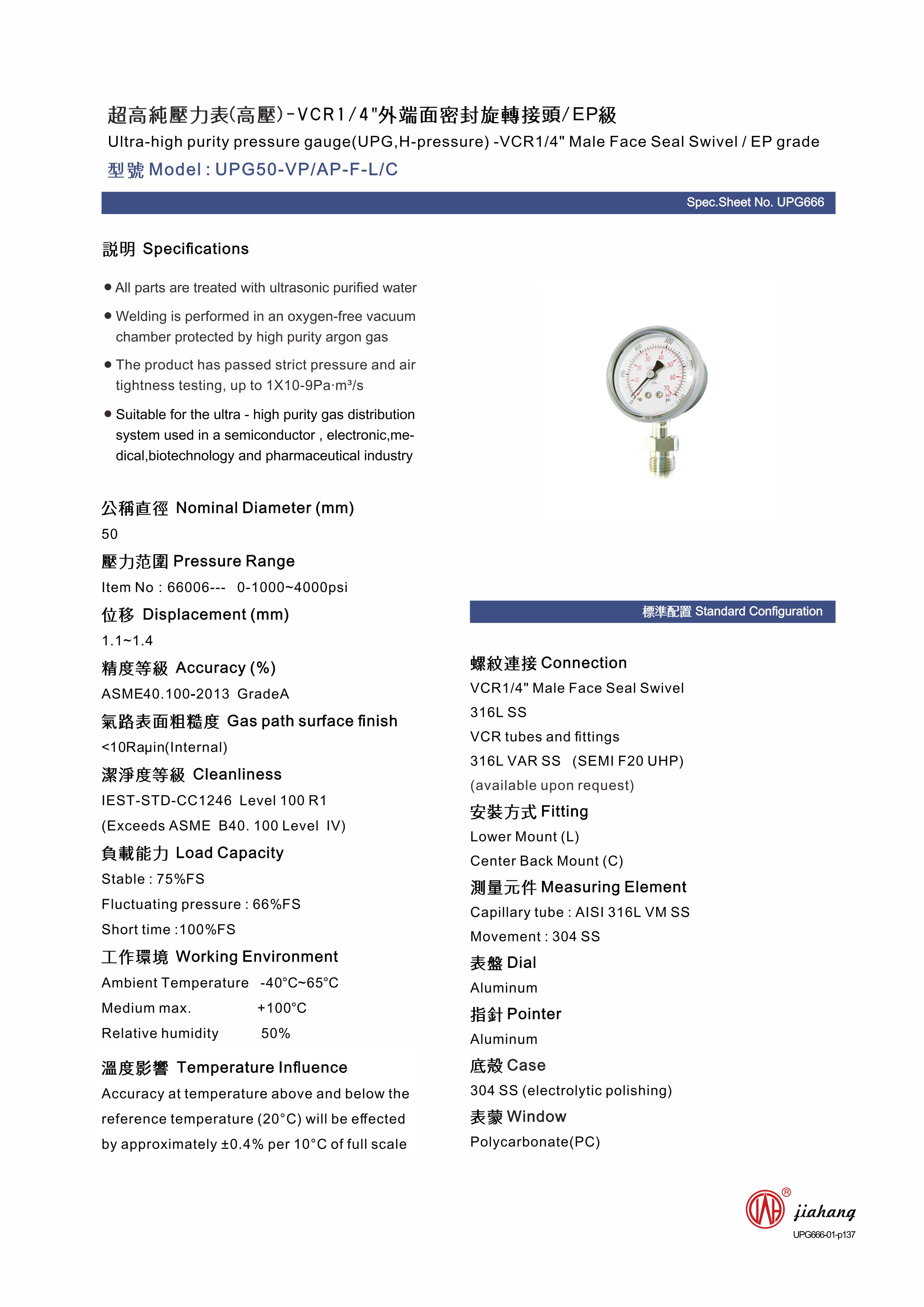
Sep . 28, 2024 19:52 Back to list
Isolation Diaphragm Pressure Gauge for Enhanced Measurement Accuracy and Safety
Understanding Isolation Diaphragm Pressure Gauges
Pressure measurement is crucial in various industrial applications, ensuring that systems function efficiently and safely. Among the different types of pressure measuring instruments, isolation diaphragm pressure gauges stand out for their unique design and advantages. This article will explore the concept, working principle, applications, benefits, and maintenance of isolation diaphragm pressure gauges, particularly with reference to Jah, a brand known for its reliability and innovation.
What is an Isolation Diaphragm Pressure Gauge?
An isolation diaphragm pressure gauge is a specialized instrument designed for measuring the pressure of corrosive fluids, slurries, or viscous materials. It features a flexible diaphragm that isolates the measuring element from the process fluid, ensuring accurate readings without contamination or damage to the gauge itself. This isolation is essential in applications involving harsh chemicals or extreme conditions, where traditional gauges may fail.
Working Principle
The fundamental working principle of an isolation diaphragm pressure gauge revolves around the diaphragm's response to pressure changes. The diaphragm is positioned between the process fluid and the measurement chamber. When pressure is applied to the diaphragm, it deflects, creating a displacement proportional to the applied pressure. This deflection is transferred through a system of linkages to an indicator mechanism that displays the pressure reading.
Key to this design is the fill fluid that occupies the space between the diaphragm and the pressure sensing element. This fluid serves not only to transmit the pressure but also to dampen the effects of vibrations and pulsations, enhancing measurement stability.
Applications of Isolation Diaphragm Pressure Gauges
Isolation diaphragm pressure gauges are versatile instruments used across various industries, including
isolation diaphragm pressure gauge jah

1. Chemical Processing Used to monitor the pressure of corrosive substances without compromising the gauge's integrity. 2. Oil and Gas Essential for measuring pressure in pipelines transporting crude oil, gas, or other hydrocarbons. 3. Food and Beverage Ensures hygienic conditions by preventing direct contact between the product and the gauge, which is critical for food safety. 4. Pharmaceuticals Monitors pressures in sterile applications, maintaining the integrity of sensitive materials. 5. Water Treatment Used in measuring the pressure of wastewater or treatment chemicals, ensuring compliance with environmental standards.
Benefits of Using Isolation Diaphragm Pressure Gauges
The advantages of isolation diaphragm pressure gauges are numerous
- Protection Against Contamination The diaphragm prevents direct contact between the process fluid and the gauge, minimizing the risk of contamination. - Enhanced Durability They are designed to withstand harsh conditions, making them ideal for use in corrosive environments. - Accurate Measurements The isolation design allows for precise measurements, even in fluctuating conditions caused by pulsations or vibrations. - Versatility These gauges can be used with a wide range of fluid types, including those that are toxic, abrasive, or high-temperature. - Safety By isolating the measurement system from the process, these gauges enhance safety by reducing the risk of leaks or failures that could endanger personnel or the environment.
Maintenance Tips
To ensure the longevity and accuracy of isolation diaphragm pressure gauges, regular maintenance is crucial
1. Regular Calibration Periodically calibrate the gauge to maintain accuracy and reliability. 2. Inspection for Leaks Examine the diaphragm regularly for signs of wear or damage and check for leaks in the system. 3. Cleaning Clean the exterior of the gauge to prevent buildup of contaminants, which can affect performance. 4. Check Fill Fluid Ensure the fill fluid level is adequate and free from contamination.
Conclusion
Isolation diaphragm pressure gauges are invaluable tools in the world of industrial pressure measurement. Brands like Jah provide reliable solutions tailored to meet the specific needs of various applications. By understanding their design, operation, and maintenance, professionals can leverage these gauges to enhance safety, efficiency, and accuracy in their respective fields. Whether in chemical production, food processing, or oil and gas operations, the role of isolation diaphragm pressure gauges cannot be overstated.
-
High-Precision 5 Valve Manifold Differential Pressure Gauge Suppliers
NewsApr.29,2025
-
High-Precision Diaphragm Vacuum Pressure Gauges Manufacturers & Quotes
NewsApr.29,2025
-
Omega Differential Pressure Gauges High Accuracy & Durability
NewsApr.28,2025
-
Low Pressure Differential Pressure Gauges Precision Solutions & Quotes
NewsApr.28,2025
-
Digital Diaphragm Pressure Gaauge Precision Measurement & OEM Quotes
NewsApr.28,2025
-
Differential Pressure Gauge China Price High-Accuracy & Best Quotes
NewsApr.28,2025
